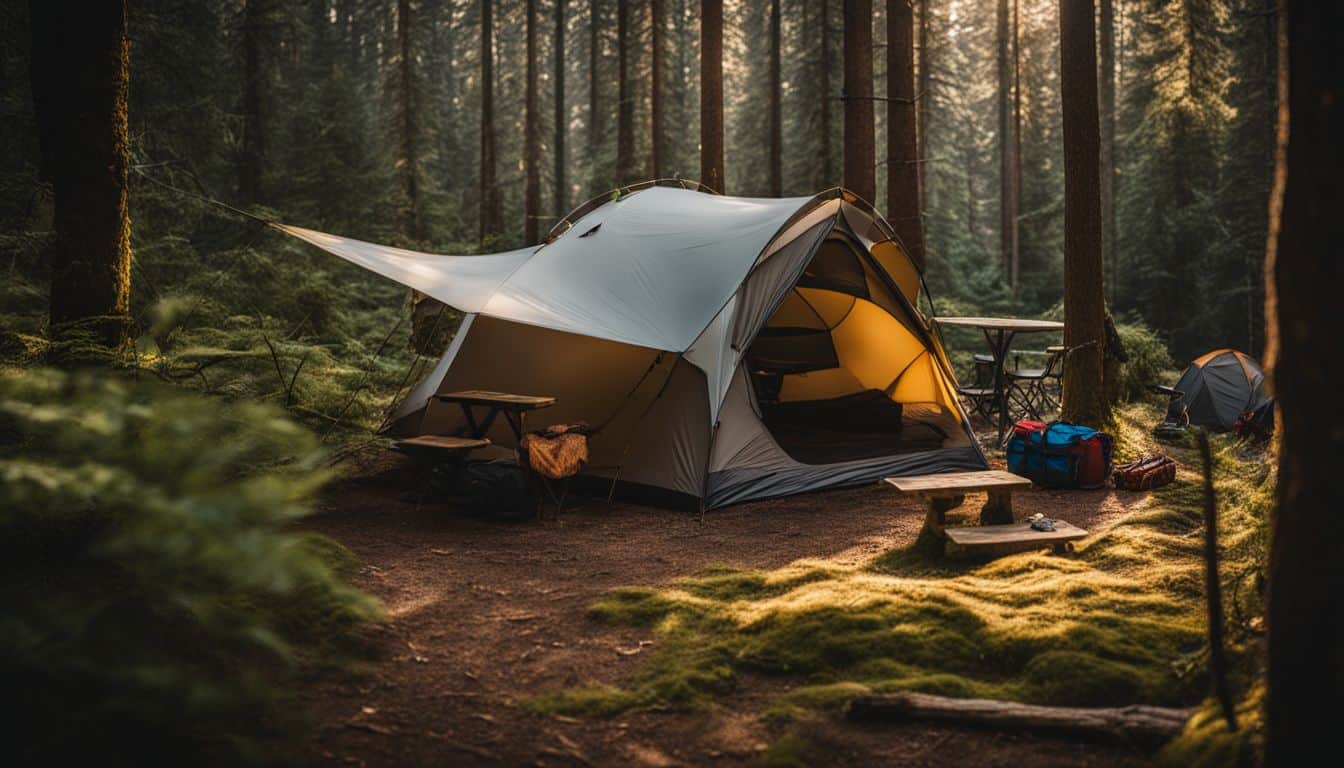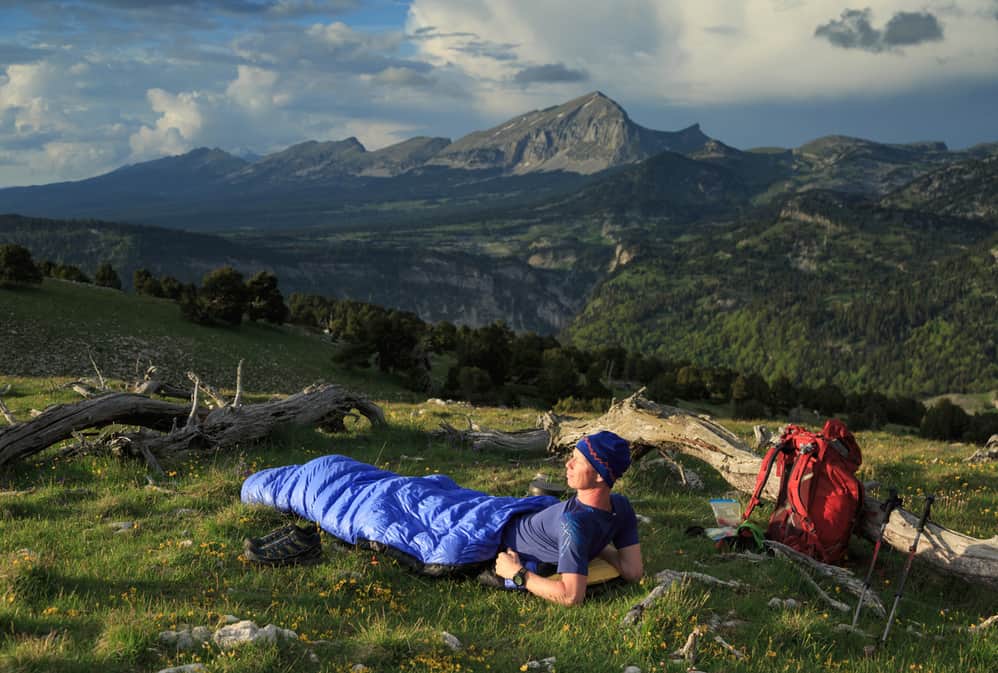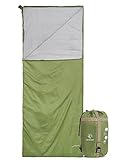In recent years, the outdoor industry has made significant strides in developing sustainable gear, and sleeping bags are no exception. As more campers and backpackers prioritize environmental consciousness, the demand for eco-friendly sleeping bags has surged. Here, we will explore the world of sustainable sleeping bags, helping you make an informed decision for your next outdoor adventure.
Understanding Sustainable Sleeping Bag Materials
The foundation of any eco-friendly sleeping bag lies in its materials. Manufacturers increasingly turn to sustainable options that reduce environmental impact without compromising performance.
Recycled Synthetic Insulation
Many sustainable sleeping bags now feature insulation made from recycled materials, primarily polyester derived from post-consumer plastic bottles. This innovative approach not only diverts waste from landfills but also reduces the demand for virgin petroleum-based materials. Recycled synthetic insulation offers excellent warmth-to-weight ratios and maintains its insulating properties even when wet, making it a popular choice for eco-conscious campers.
Responsibly Sourced Down
Responsibly sourced options are available for those who prefer the exceptional warmth and compressibility of down insulation. The Responsible Down Standard (RDS) certification ensures that down and feathers come from animals that are not subjected to unnecessary harm. Some brands, like Mountain Equipment, have taken this further with their Down Cycle project, which recycles down from products destined for landfills.
Recycled Fabrics
The outer shells and linings of sustainable sleeping bags often incorporate recycled materials. These fabrics, typically made from recycled polyester or nylon, offer durability and weather resistance comparable to their non-recycled counterparts. Brands like Rab have committed to using 100% recycled fabrics in their sleeping bag collections, significantly reducing their environmental footprint.
Innovative Eco-Technologies in Sleeping Bags
Sustainability in sleeping bags goes beyond just materials. Manufacturers are implementing innovative technologies to enhance performance while minimizing environmental impact.
PFC-free water-repellent treatments have become increasingly common, eliminating the need for harmful perfluorinated compounds. Some brands have even introduced undyed fabrics, like Mountain Hardwear’s Lamina Eco AF, which saves thousands of gallons of wastewater in production.
Heat-reflective technologies, such as Rab’s TILT Scrim Technology, are being developed using more sustainable materials to improve thermal efficiency without relying heavily on additional insulation.
Top Sustainable Sleeping Bag Brands and Models
Several outdoor brands have made significant commitments to sustainability in their sleeping bag lines. Here are some standout options:
- Rab Solar Eco: Featuring 100% recycled Stratus synthetic insulation and recycled outer fabrics, this bag sets a new standard for eco-friendly design.
- Mountain Equipment Earthrise: This bag utilizes 100% recycled down and recycled fabrics, demonstrating the potential of circular economy principles in outdoor gear.
- The North Face Eco Trail Synthetic 20: Made almost entirely from recycled materials, this bag offers an affordable entry point into sustainable camping.
- Marmot Trestles Elite Eco: This synthetic bag incorporates recycled materials and boasts a PFC-free finish, balancing performance with environmental responsibility.
Certifications and Standards to Look For
When shopping for sustainable sleeping bags, keep an eye out for these certifications:
- Bluesign®: Ensures responsible and sustainable manufacturing of textiles.
Global Recycled Standard (GRS)verifies recycled content and responsible social, environmental, and chemical practices. - Responsible Down Standard (RDS): Certifies that down comes from animals not subjected to unnecessary harm.
Performance vs. Sustainability: Finding the Balance
One common concern about eco-friendly gear is whether it matches the performance of traditional options. However, many sustainable sleeping bags now offer comparable, if not superior, performance to their conventional counterparts. Temperature ratings, insulation efficiency, and durability are on par with traditional bags, proving that you don’t have to sacrifice comfort or safety for sustainability.
Care and Maintenance for Longevity
Proper care of your sustainable sleeping bag extends its lifespan and reduces its overall environmental impact. Follow these tips:
- Use eco-friendly cleaning products when possible to clean your bag according to the manufacturer’s instructions.
- Store your bag uncompressed in a cool, dry place to maintain insulation loft.
- Use a sleeping bag liner to reduce the frequency of washing.
The Future of Sustainable Sleeping Bag Technology
The outdoor industry continues to innovate in sustainable materials and manufacturing processes. We can expect advancements in biodegradable synthetic insulations, more efficient recycling processes, and increased use of plant-based materials in future sleeping bag designs.
Choosing the Right Eco-Friendly Sleeping Bag for Your Needs
When selecting a sustainable sleeping bag, consider your specific camping needs:
- Temperature rating: Choose a bag rated for the lowest temperatures you expect to encounter.
- Insulation type: Based on your preferences and typical camping conditions, choose between recycled synthetic and responsibly sourced down.
- Weight and packability: A lightweight, compressible bag is crucial for backpackers.
- Shape and fit: Based on your sleeping style and comfort preferences, consider mummy, rectangular, or semi-rectangular shapes.

Conclusion
Investing in a sustainable sleeping bag is a meaningful step towards reducing your environmental impact while enjoying the great outdoors. With the wide range of eco-friendly options now available, you can find a bag that meets your performance needs without compromising your values. By choosing sustainable gear, we can all contribute to preserving the natural spaces we love to explore.











Leave a Reply